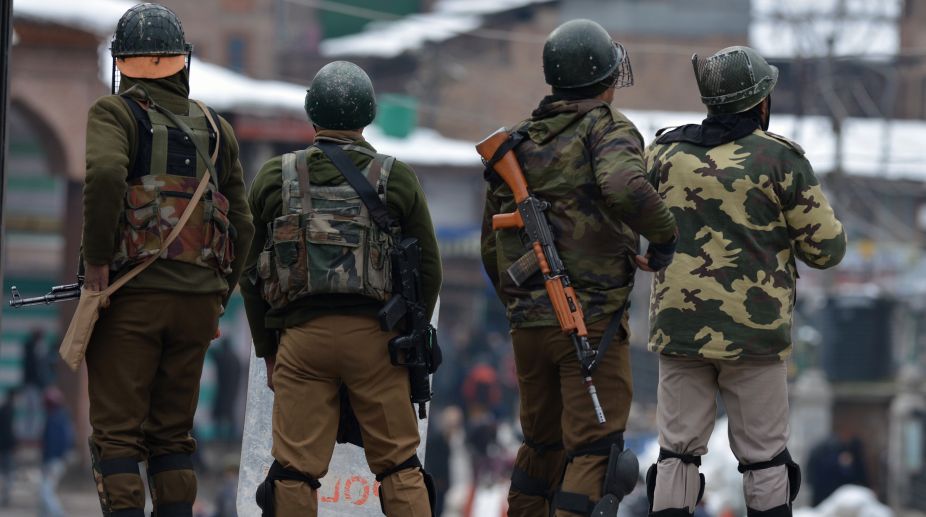Omar calls for intensified efforts towards initiating cadaveric organ donation in J&K
He assured full government support in strengthening these institutions to promote a healthier society.

Representational Image (PHOTO: AFP)
A Pune-based woman, alleged to be a suicide bomber, was detained by Jammu and Kashmir Police last night from South Kashmir, police said.
“We had an input about a suspect. Fortunately, after working on all the leads, we were able to apprehend the suspect late last night,” Additional Director General of Police Munir Khan told reporters here.
Advertisement
Refusing to give any further details, Khan, who is also holding the post of Inspector General of Police (Kashmir Range), said, “We will be talking to her (suspect) and we will be talking to our sister agencies. We will be covering every other lead to know what the facts are. After doing proper investigation, we will come to any conclusion.”
Advertisement
Central intelligence agencies had sounded to the state police that a woman from Pune, identified as Sadiya Anwar Shaikh, had shifted herself to Kashmir Valley and was in regular touch with ISIS operatives, officials said.
A high alert was sounded in the valley two days ahead of Republic Day and a message was circulated that “there is a strong input” that an 18-year-old non-Kashmiri woman might “cause a suicide bomb explosion” near or inside the Republic Day parade in Kashmir.
“All are directed to please ensure that frisking of ladies at the (venues) is done meticulously and with utmost caution so as to thwart the designs of ANEs (anti-national elements),” the message, circulated on 23 January, read.
Shaikh had been questioned by the Pune Anti-Terrorism Squad in 2015, when it came to notice that she had been radicalised after coming in contact with ISIS supporters abroad.
She was planning to travel to Syria, the ATS had then claimed. The woman, a Class XI student at a Pune college, was subsequently sent for a de-radicalisation programme by the ATS.
Advertisement